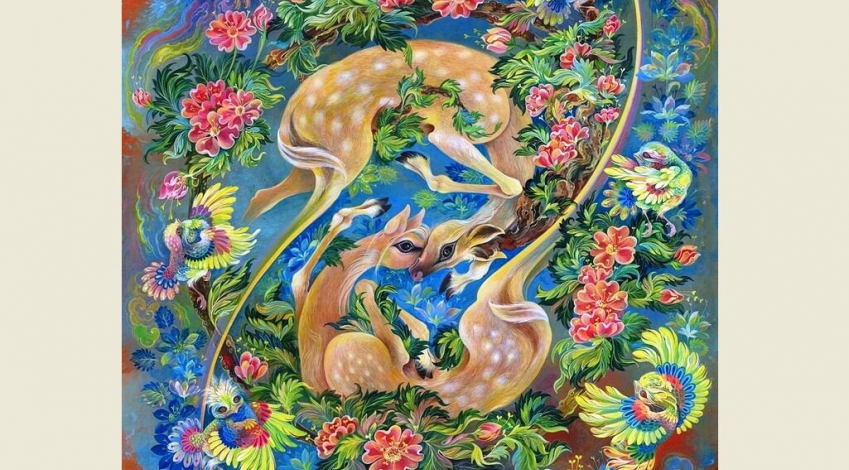Wednesday 1 March 2023 - 23:28
Story Code : 404466
Iranian Studies Center to unveil Persian paintings inspired by Nezami poetry
The artworks have been created by Mehdi Farrokhi and will be introduced as part of the center�s program to celebrate Nezami Day, which falls on March 12 this year, the director of the center, Abdolmajid Sharifzadeh told the Persian service of IRNA on Wednesday.
Following the unveiling ceremony, Mohammad Ali Rajabi of the Farshchian Islamic-Iranian Arts University will deliver a speech.
�Nezami is one of our great poets who introduces himself as an Iranian in his poetry and never feels ashamed of his nationality,� Sharifzadeh said.
�In his Panj Ganj [The Five Treasures], he thoughtfully composed the most profound lyrics produced in the history of Persian literature and taught us morals and wisdom,� he added.
�Due to their unique literary characteristics, his works deserve to be scrutinized in different meetings, and in the Iranian Studies Center of the Iranology Foundation, we plan to discuss his poetry and its impact on art, in particular Persian painting,� he noted.
�By a study into the past, we learn about a close relationship between Iranian literati and artists, and the correlation has been a source of inspiration for the artists and has been represented in their artworks,� Sharifzadeh explained.
Iran will commemorate Nezami Ganjavi in an eight-day festival beginning on March 5.
The National Orchestra is scheduled to perform a concert with poems from Nezami at Tehran�s Vahdat Hall in a closing ceremony on Nezami Day.
Nezami Ganjavi (c. 1141-1209 CE) is mostly known for �Khamseh�, two copies of which that are preserved in Iran were inscribed on UNESCO�s Memory of the World Register list in 2011.
�Khamseh� is a pentalogy of poems written in Masnavi verse form (rhymed couplets) with a total of 30,000 couplets.
These five poems include the didactic work Makhzan ol-Asrar (The Treasury of Mysteries); the three traditional love stories of Khosrow and Shirin, Leili and Majnun, and Haft Paykar; and the Eskandar-nameh, which records the adventures of Alexander the Great.
There are various versions of �Khamseh� in Iranian libraries, but the two versions kept at the Central Library of the University of Tehran and the library of the Shahid Motahhari School and Mosque in Tehran are the ones that were registered by UNESCO.
By TEHRAN TIMES�
# Tags











